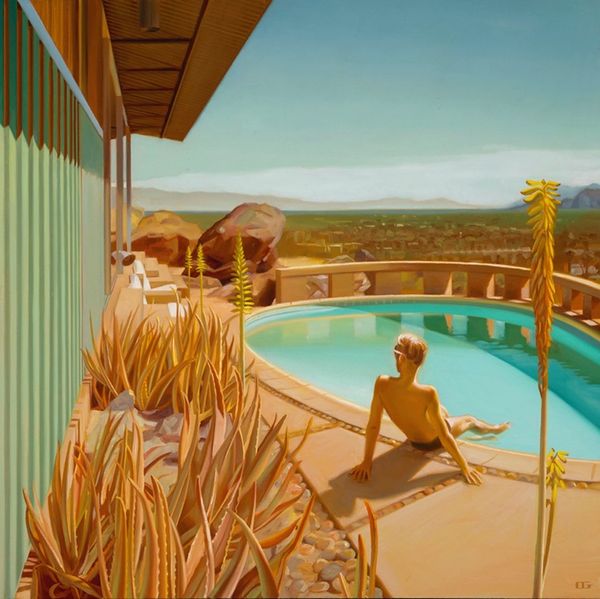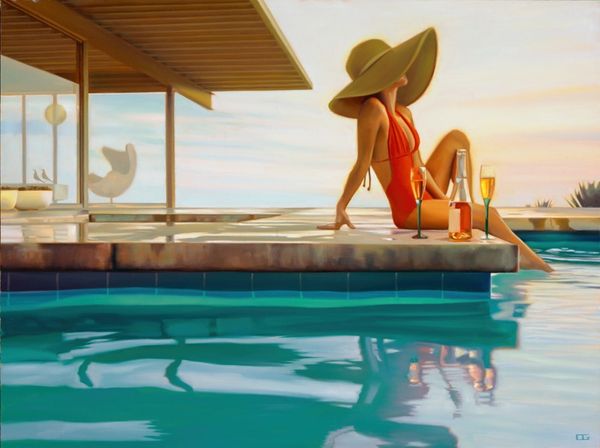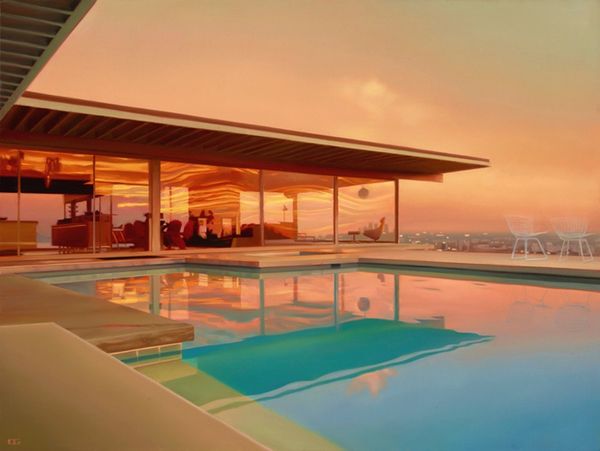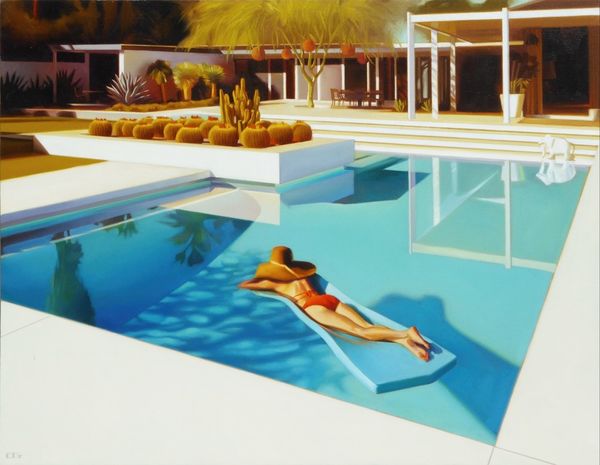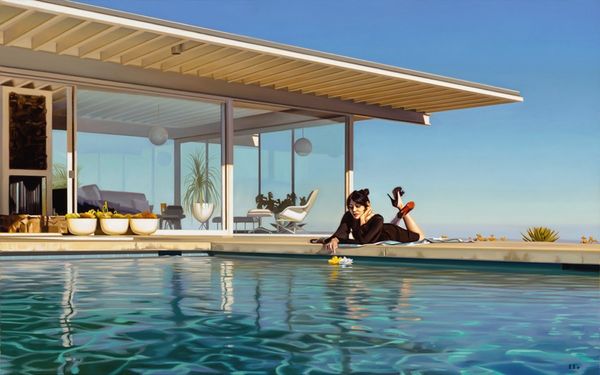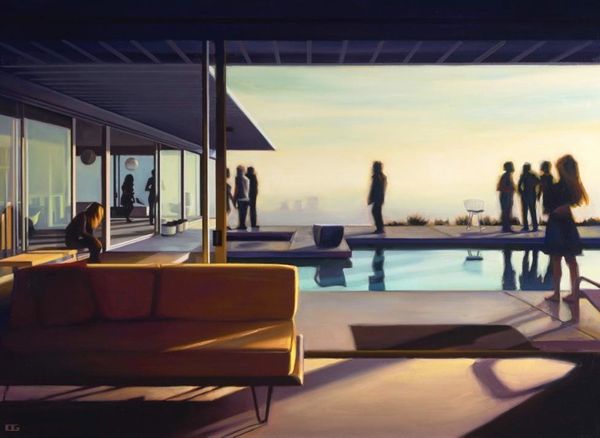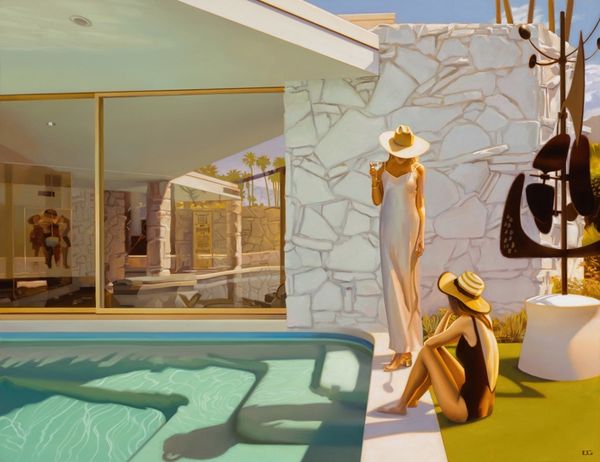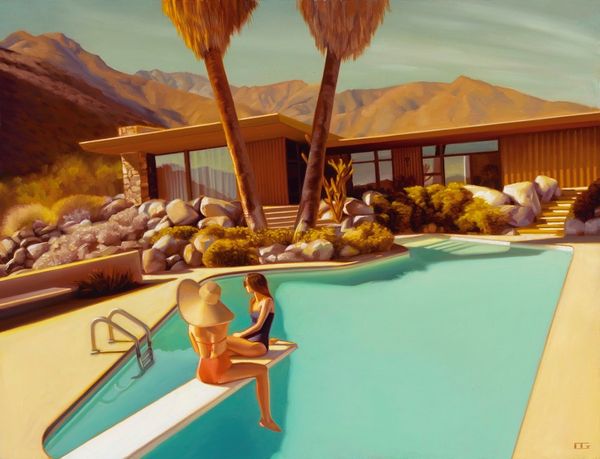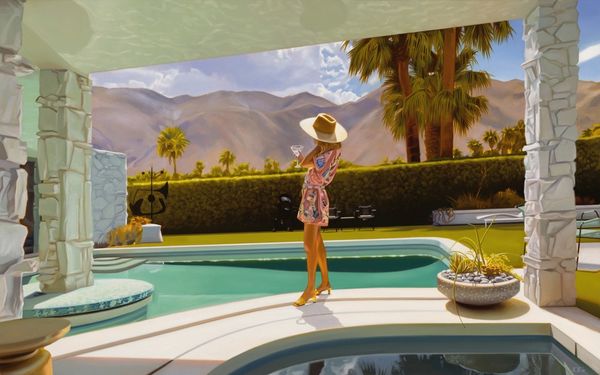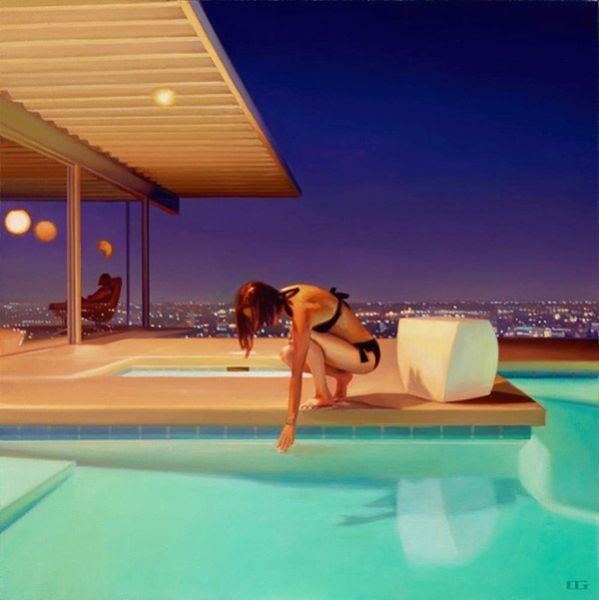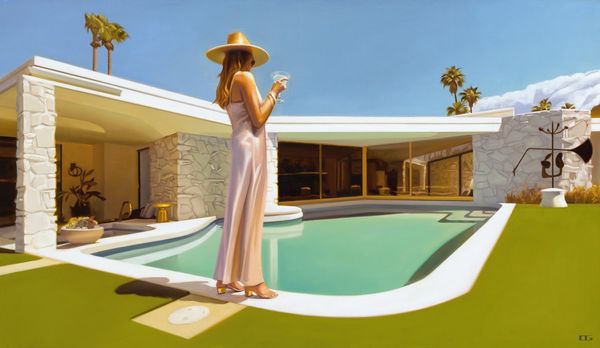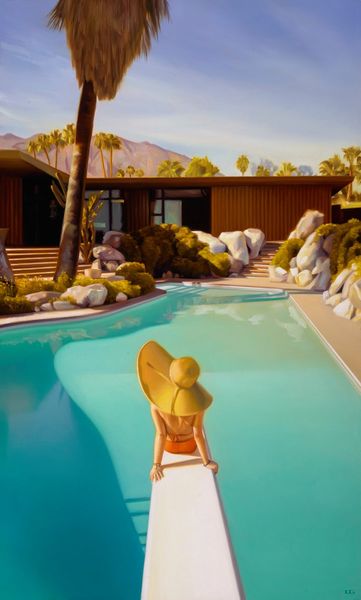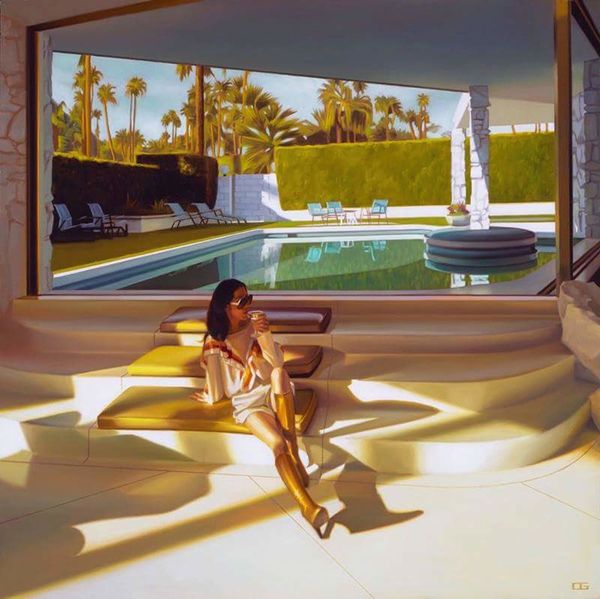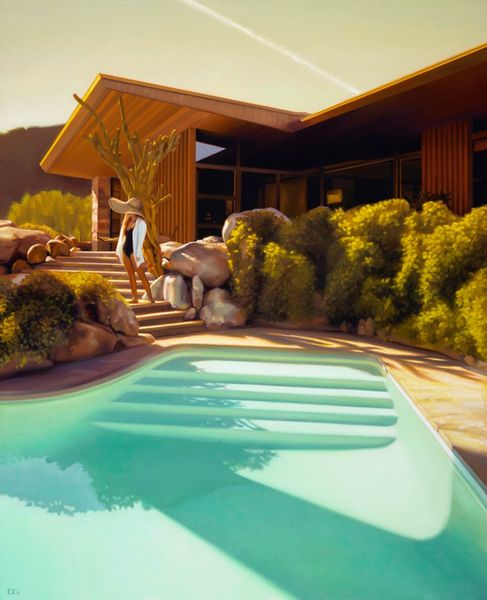
painting, oil-paint
#
contemporary
#
painting
#
oil-paint
#
landscape
#
oil painting
#
cityscape
#
nude
#
realism
Copyright: Modern Artists: Artvee
Editor: Carrie Graber's "Hush, Dusk," painted in oil, presents a scene of tranquility, with a lone figure in a pool overlooking a cityscape. I'm struck by the juxtaposition of the modern architecture and the implied vulnerability of the figure. What narratives do you think this work evokes? Curator: The piece indeed brings up fascinating questions. Graber presents a constructed reality steeped in late capitalist desires: a modern home, a pool, a seemingly endless view. Yet, within that framework of privilege, she introduces a figure, partially nude and turned away from us. How might we interpret that gaze towards the cityscape? Is it one of longing, of belonging, or perhaps a critique of the very structures that elevate her view? Consider how the hyper-realistic style contrasts with the subtle emotional undercurrent. Does it normalize or perhaps even question this lifestyle? Editor: I see what you mean. It's not just a pretty picture; there's an underlying tension. The realism makes it seem attainable, but the figure's posture and the title, "Hush, Dusk," suggest a certain melancholy, a silencing even. What do you make of the setting itself, the modern house? Curator: The house acts as both a sanctuary and a cage, right? Think of the history of modernist architecture and its promises of a better life. For whom was this "better life" intended? And at what cost? The painting subtly points to the alienation inherent within these spaces, even as they offer panoramic views. Do you think Graber is making a comment on the legacy of modernism, its unrealized utopias? Editor: That makes me reconsider the reflection on the water, which distorts everything and fragments the image. It's not just a pretty effect, but adds another layer of complexity. Curator: Exactly! The fragmented reflections remind us that these spaces and identities are never whole, never fixed. Art invites conversation that exposes societal norms. What will you take away from Graber's narrative? Editor: I’m now aware of the underlying critical context of the painting; that contemporary landscapes reflect more than superficial beauty, and invite dialogue regarding socioeconomic realities and the relationship between individuals and constructed spaces.
Comments
No comments
Be the first to comment and join the conversation on the ultimate creative platform.
